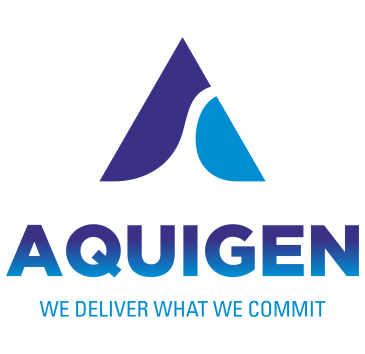Medications play a crucial role in managing various health conditions, from hypertension to attention deficit hyperactivity disorder (ADHD). However, the presence of impurities in these drugs can pose significant risks to patient safety. One such impurity, N-nitroso-clonidine, has recently raised concerns among healthcare professionals and regulatory authorities worldwide. At Aquigen Bio Sciences, the leading Contract Research Organization in India, we help pharmaceutical companies detect and eliminate N-Nitroso impurities in Clonidine. Let us guide you through N-Nitroso-Clonidine: a lurking threat in Hypertension and ADHD Medications and a comprehensive approach to managing this critical safety concern.
About N-Nitroso-Clonidine
Clonidine, a centrally acting alpha-2 agonist, is a widely prescribed medication for the treatment of hypertension and ADHD. While it has proven to be effective in managing these conditions, the discovery of N-Nitroso-Clonidine, a potential carcinogenic impurity, has sparked intense scrutiny and raised questions about the safety of clonidine-containing products.
N-nitroso-clonidine is a nitrosamine impurity that can form during the manufacturing process of clonidine or as a result of degradation over time. Nitrosamines are a class of compounds known for their potential carcinogenic properties, and their presence in pharmaceutical products is strictly regulated by health authorities worldwide.
Regulatory Concerns and Safety Implications
In recent years, regulatory agencies such as the U.S. Food and Drug Administration (FDA) and the European Medicines Agency (EMA) have issued alerts and guidance regarding the presence of nitrosamine impurities, including N-nitroso-clonidine, in various medications. These agencies have set stringent limits for the acceptable levels of these impurities, recognizing their potential health risks.
The presence of N-nitroso-clonidine in clonidine-containing products raises significant concerns due to its potential carcinogenic properties. Prolonged exposure to this impurity, even at low levels, may increase the risk of developing certain types of cancer, particularly in vulnerable populations such as children and individuals with compromised immune systems.
Impact on Hypertension and ADHD Treatment
The discovery of N-nitroso-clonidine in clonidine-containing medications has led to widespread recalls and supply disruptions, affecting patients who rely on these drugs for the management of hypertension and ADHD.
For patients with hypertension, clonidine is often prescribed as an adjunctive therapy or as an alternative to other antihypertensive medications. The potential shortage or unavailability of clonidine products due to recalls can disrupt treatment regimens and require adjustments or alternative therapies, which may not be as effective or well-tolerated.
In the case of ADHD, clonidine is frequently used as part of a comprehensive treatment plan, either alone or in combination with stimulant medications. The presence of N-nitroso-clonidine in these formulations raises concerns, particularly for children and adolescents who are more vulnerable to the potential long-term effects of exposure to carcinogenic impurities.
Mitigation Strategies and Industry Efforts
Pharmaceutical companies and regulatory authorities are actively working to address the issue of N-nitroso-clonidine and other nitrosamine impurities in medications. Several strategies are being implemented to mitigate the risks associated with these impurities, including:
- Manufacturing process improvements: Pharmaceutical manufacturers are investing in research and development to optimize their manufacturing processes, aiming to minimize the formation of nitrosamine impurities during the production of clonidine and other drugs.
- Analytical testing and monitoring: Rigorous analytical testing and monitoring protocols are being implemented to detect and quantify the presence of N-nitroso-clonidine and other nitrosamine impurities in drug products, ensuring compliance with regulatory limits.
- Risk assessment and management: Regulatory agencies and manufacturers are conducting comprehensive risk assessments to evaluate the potential health risks associated with N-nitroso-clonidine exposure and develop appropriate risk management strategies.
- Product recalls and supply chain management: In cases where N-nitroso-clonidine levels exceed acceptable limits, product recalls are initiated to protect patient safety. Manufacturers are also working to ensure a continuous and reliable supply of safe and effective medication alternatives.
The Role of Contract Research Organizations (CROs)
Contract research organizations (CROs) play a vital role in supporting pharmaceutical companies in addressing the challenges posed by N-nitroso-clonidine and other nitrosamine impurities. CROs offer specialized expertise and services to assist in various aspects of drug development and manufacturing, including:
- Analytical services: CROs provide state-of-the-art analytical capabilities to detect, quantify, and characterize nitrosamine impurities like N-nitroso-clonidine in drug products, enabling manufacturers to ensure compliance with regulatory requirements.
- Synthetic chemistry services: CROs specializing in synthetic chemistry can assist in the development and optimization of alternative synthetic routes or manufacturing processes that minimize the formation of nitrosamine impurities like N-nitroso-clonidine.
- Regulatory support: CROs offer regulatory expertise and support to help pharmaceutical companies navigate the complex regulatory landscape, ensure compliance with evolving guidelines, and facilitate effective communication with regulatory authorities.
- Risk assessment and mitigation strategies: CROs collaborate with pharmaceutical companies to conduct comprehensive risk assessments and develop effective risk mitigation strategies, ensuring patient safety while minimizing disruptions in drug supply.
Conclusion
We hope this blog has been insightful for understanding about N-Nitroso-Clonidine: A Lurking Threat in Hypertension and ADHD Medications and highlighted the importance of vigilance in the pharmaceutical industry. Regulatory authorities, manufacturers, and healthcare professionals are actively collaborating to address this issue, implementing strategies to mitigate risks and ensure a reliable supply of safe and effective medications.
Aquigen Bio Sciences, a leading contract research organization in India, is at the forefront of supporting pharmaceutical companies in addressing the challenges posed by nitrosamine impurities like N-nitroso-clonidine. With state-of-the-art analytical capabilities, Aquigen Bio Sciences is well-equipped to assist in the development of alternative manufacturing processes, analytical testing, and risk mitigation strategies.
By partnering with Aquigen Bio Sciences, pharmaceutical companies can benefit from their extensive experience and specialized knowledge, ensuring the delivery of safe and effective medications while navigating the complexities of regulatory compliance and patient safety concerns. Contact us today to discuss how we can support your efforts in achieving safety and quality assurance for N-nitroso-clonidine impurity.


